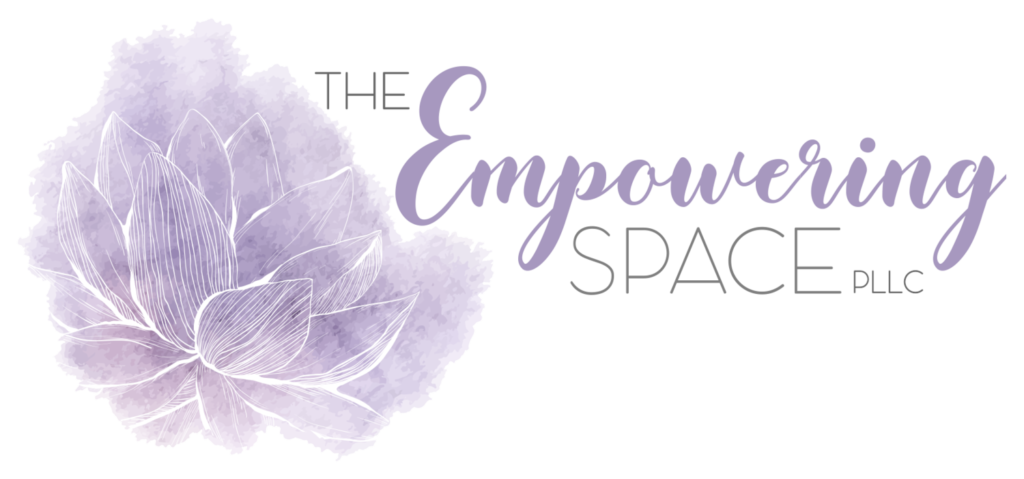One in ten Americans struggles with substance abuse, but less than 20% ever receive professional treatment through addiction therapy. The stigma, cost barriers, and confusion about what actually works keep millions suffering in silence.
Addiction therapy offers real hope for recovery. Professional treatment can help you break free from the cycle of substance abuse and rebuild your life.

Addiction isn’t a moral failing or lack of willpower. It’s a complex mental health condition that changes brain chemistry and requires professional treatment. The good news? Addiction treatment works when you have the right support and evidence-based approaches.
Here’s what you’ll discover in this comprehensive guide:
- How addiction therapy actually works to rewire your brain
- Different types of treatment programs and their success rates
- Real costs and insurance coverage for addiction treatment
- How to find the right therapist for your specific needs
- What to expect during your recovery journey
Let’s explore how professional addiction therapy could be your path to lasting recovery.
What Is Addiction Therapy and How Does It Work?
Addiction therapy is professional treatment that helps people overcome substance abuse and maintain long-term recovery. Licensed therapists use evidence-based techniques to address the psychological, behavioral, and social aspects of addiction.
Unlike detox alone, addiction therapy treats the underlying causes of substance abuse. It helps rewire thought patterns, develop healthy coping skills, and build a strong foundation for recovery.

Understanding Addiction as a Mental Health Condition
First, it’s crucial to understand that drug addiction is a chronic mental health condition, not a character flaw. Addiction changes brain structure and function, particularly in areas controlling decision-making, impulse control, and reward processing.
Substance abuse often develops alongside other mental health conditions like depression, anxiety, or trauma. This dual diagnosis requires specialized treatment addressing both conditions simultaneously.
Research from the National Institute on Drug Abuse shows that addiction affects brain circuits involved in reward, stress, and self-control. Addiction therapy helps restore healthy brain function through targeted interventions.
Underlying mental health issues frequently contribute to addiction development. Trauma, childhood abuse, and untreated mental health problems increase addiction risk significantly.
Core Principles of Addiction Treatment
Addiction treatment follows several core principles proven effective through decades of research. Treatment must be individualized to address each person’s unique circumstances, needs, and goals.
Comprehensive assessment identifies all factors contributing to addiction, including medical history, mental health conditions, family dynamics, and social circumstances. This information guides personalized treatment planning.
Evidence-based therapies form the backbone of effective addiction treatment. These approaches have rigorous research supporting their effectiveness for substance abuse recovery.
Integrated care addresses addiction alongside any co-occurring mental health conditions. Treating only addiction while ignoring depression or anxiety often leads to relapse.
Goals and Outcomes of Addiction Therapy
Addiction therapy aims for complete abstinence from substances while building skills for long-term recovery. Early goals focus on safety, withdrawal management, and crisis stabilization.
Long-term objectives include developing healthy coping mechanisms, rebuilding damaged relationships, and creating meaningful life purpose. Recovery encompasses much more than simply stopping drug or alcohol use.
Relapse prevention strategies help individuals recognize warning signs and take action before returning to substance use. These skills prove crucial for maintaining long-term recovery.
Quality of life improvements measure true addiction treatment success. This includes better relationships, career advancement, improved health, and overall life satisfaction.
Types of Addiction Therapy: Evidence-Based Treatment Approaches
Multiple addiction therapy approaches have proven effective for different individuals and situations. The best treatment programs often combine several therapeutic modalities for comprehensive care.

Cognitive Behavioral Therapy for Addiction
Cognitive behavioral therapy (CBT) is one of the most effective addiction therapy approaches. CBT helps identify and change negative thought patterns that contribute to substance abuse.
Addiction treatment using CBT teaches practical skills for managing cravings, avoiding triggers, and developing healthy coping strategies. Clients learn to recognize distorted thinking that leads to relapse.
Homework assignments reinforce CBT skills between therapy sessions. These might include thought tracking, trigger identification, or practicing new behaviors in real situations.
Research consistently shows cognitive behavioral therapy reduces relapse rates and improves long-term recovery outcomes across various substance abuse disorders.
Dialectical Behavior Therapy for Substance Abuse
Dialectical behavior therapy (DBT) proves particularly effective for individuals with borderline personality disorder and addiction. DBT teaches emotional regulation skills crucial for recovery.
DBT skills include distress tolerance, mindfulness, emotion regulation, and interpersonal effectiveness. These tools help manage intense emotions without turning to substances.
Group therapy settings allow DBT skills practice with peer support. Participants learn from each other while developing healthy relationships essential for recovery.
Studies show DBT significantly reduces self-harm behaviors, improves emotion regulation, and decreases substance abuse among participants with dual diagnosis conditions.
Motivational Enhancement Therapy
Motivational enhancement therapy helps individuals overcome ambivalence about addiction treatment and build internal motivation for change. This approach works especially well for alcohol addiction.
Motivational interviewing techniques help clients explore their own reasons for change rather than having motivation imposed externally. This increases treatment engagement and recovery commitment.
Goal-setting exercises help clients identify personal values and how substance abuse conflicts with those values. This creates powerful motivation for sustained recovery efforts.
Research demonstrates that motivational enhancement therapy improves treatment retention and reduces alcohol addiction more effectively than confrontational approaches.
Family Therapy in Addiction Treatment
Family therapy addresses how addiction affects entire family systems and teaches healthy communication patterns. Addiction damages relationships that require healing for successful recovery.
Family education helps loved ones understand addiction as a disease rather than moral failing. This reduces blame and shame while increasing supportive behaviors.
Boundary setting teaches family members how to support recovery without enabling continued substance abuse. Healthy boundaries benefit both the individual and family members.
Communication training helps families express needs, set expectations, and resolve conflicts constructively. These skills support long-term recovery and family healing.
Specialized Addiction Therapy for Different Substances and Behaviors
Different substances and addictive behaviors require tailored addiction therapy approaches. Treatment programs must address the unique challenges associated with specific substance abuse patterns.

Alcohol Addiction Therapy
Alcohol addiction presents unique challenges because alcohol is legal and socially accepted. Treatment must address social and cultural factors surrounding alcohol use.
Medication management options include naltrexone, acamprosate, and disulfiram to reduce cravings and support abstinence. These medications work best combined with therapy.
Social support becomes crucial since alcohol is present at many social events. Therapy helps develop strategies for navigating social situations without drinking.
Relapse prevention for alcohol addiction focuses on identifying high-risk situations and developing alternative coping strategies. Learn more about our comprehensive addiction treatment approaches.
Drug Addiction Treatment Approaches
Drug addiction treatment varies significantly based on the specific substances involved. Opioid addiction requires different approaches than stimulant or prescription drug abuse.
Medication-assisted treatment proves essential for opioid addiction, using methadone, buprenorphine, or naltrexone to manage withdrawal and cravings safely.
Stimulant addiction treatment relies primarily on behavioral therapy since no FDA-approved medications exist for cocaine or methamphetamine addiction.
Prescription drug abuse often requires careful medical supervision to safely taper off medications while addressing underlying mental health conditions.
Behavioral Addiction Therapy
Behavioral addictions like gambling, sex, or internet addiction don’t involve substances but create similar brain changes requiring professional treatment.
Gambling addiction therapy uses cognitive behavioral therapy to address distorted thinking about odds, luck, and control. Financial counseling often accompanies therapy.
Sexual addiction therapy addresses underlying trauma, shame, and compulsive behaviors while teaching healthy relationship and intimacy skills.
Technology addiction treatment helps establish healthy boundaries with devices, social media, and online activities while addressing underlying emotional needs.
Eating Disorders and Addiction Comorbidity
Eating disorders frequently co-occur with substance abuse, requiring integrated treatment addressing both conditions. This dual diagnosis complicates recovery significantly.
Depression eating disorders often develop together, requiring specialized therapy approaches addressing mood, eating behaviors, and substance abuse simultaneously.
Nutritional counseling works alongside addiction therapy to restore healthy eating patterns and address malnutrition from substance abuse.
Body image work helps individuals develop healthy relationships with food and their bodies while maintaining recovery from substances.
Group Therapy and Support Groups in Addiction Recovery
Group therapy provides unique benefits for addiction treatment that individual therapy alone cannot offer. Peer support and shared experiences reduce isolation and shame.

Benefits of Group Therapy for Addiction
Peer support helps individuals realize they’re not alone in their struggles with substance abuse. Hearing others’ stories reduces shame and stigma surrounding addiction.
Accountability develops naturally in group therapy settings where members support each other’s recovery goals. This peer accountability often proves more powerful than therapist accountability alone.
Social skills development occurs through group therapy interactions. Many people with substance abuse issues have damaged social relationships requiring rebuilding.
Cost-effectiveness makes group therapy more affordable than individual therapy while providing excellent treatment outcomes. Insurance often covers group therapy more readily.
Types of Addiction Therapy Groups
Process groups focus on emotional exploration and relationship dynamics affected by substance abuse. Members discuss feelings, conflicts, and personal insights.
Psychoeducational groups teach specific skills and information about addiction, recovery, and relapse prevention. These groups combine education with peer support.
Gender-specific groups address unique challenges faced by men or women in recovery. These groups create safe spaces for discussing sensitive topics.
Online addiction therapy groups provide support for those unable to attend in-person meetings due to geography, scheduling, or mobility limitations.
Support Groups vs. Professional Therapy Groups
Mutual aid groups like Alcoholics Anonymous provide peer support but don’t replace professional addiction therapy. These groups complement professional treatment beautifully.
Professional facilitators in therapy groups can address complex mental health issues and provide clinical interventions beyond peer support capabilities.
Evidence-based protocols guide professional group therapy, ensuring participants receive effective treatment rather than just social support.
Integrated approaches combining professional therapy groups with mutual aid support groups often provide the most comprehensive recovery support.
Dual Diagnosis: Treating Addiction and Mental Health Conditions Together
Dual diagnosis treatment addresses substance abuse alongside co-occurring mental health conditions. This integrated approach proves essential for lasting recovery.
Common Co-Occurring Mental Health Disorders
Depression and substance abuse frequently occur together, creating a cycle where each condition worsens the other. Depression treatment must accompany addiction therapy for effective recovery.
Anxiety disorders often lead to self-medication with alcohol or drugs. Treatment must address both the anxiety and the substance abuse simultaneously.
Bipolar disorder creates mood swings that can trigger substance use during manic or depressive episodes. Mood stabilization supports addiction recovery.
Post-traumatic stress disorder frequently underlies substance abuse as individuals attempt to numb traumatic memories. Trauma therapy becomes crucial for recovery.
Integrated Treatment Approaches
Simultaneous treatment of addiction and mental health conditions produces better outcomes than treating conditions separately or sequentially.
Medication management may include antidepressants, mood stabilizers, or anti-anxiety medications alongside addiction treatment. Careful monitoring prevents medication misuse.
Specialized therapy techniques address both conditions together. For example, trauma-focused CBT treats PTSD while building addiction recovery skills.
Coordinated care ensures all providers communicate about treatment progress and adjust approaches based on both addiction and mental health needs.
Addressing Underlying Mental Health Problems
Trauma history often underlies both substance abuse and mental health conditions. Addressing trauma becomes essential for lasting recovery.
Childhood experiences including abuse, neglect, or family dysfunction frequently contribute to later addiction development. Therapy must address these root causes.
Emotional regulation skills help individuals manage difficult feelings without turning to substances. These skills prove crucial for long-term recovery success.
Self-compassion work helps heal shame and self-blame that perpetuate both addiction and mental health struggles. Healing requires treating oneself with kindness.
Finding the Right Addiction Therapy Program
Choosing appropriate addiction treatment requires careful consideration of individual needs, preferences, and circumstances. Not all treatment programs work equally well for everyone.

Levels of Care in Addiction Treatment
Inpatient treatment provides 24/7 medical supervision and intensive therapy for severe addiction cases. This level of care ensures safety during detox and early recovery.
Outpatient programs allow individuals to maintain work and family responsibilities while receiving addiction therapy. These programs offer varying intensity levels.
Intensive outpatient programs (IOP) provide several therapy sessions weekly while allowing clients to live at home. This bridges inpatient and standard outpatient care.
Online addiction therapy offers convenient access to professional treatment regardless of location. This option particularly benefits those in rural areas or with scheduling constraints.
What to Look for in Addiction Treatment Programs
Licensed therapists with addiction specialization ensure you receive quality professional care. Verify credentials and addiction-specific training for all treatment providers.
Evidence-based approaches like cognitive behavioral therapy and motivational enhancement therapy have research supporting their effectiveness for addiction treatment.
Individualized treatment plans address your specific needs, circumstances, and goals rather than using one-size-fits-all approaches.
Comprehensive assessment evaluates all factors affecting your addiction, including mental health conditions, family dynamics, and social circumstances.
Insurance Coverage and Cost Considerations
Insurance coverage for addiction treatment has improved significantly under mental health parity laws. Most plans now cover substance abuse treatment similarly to medical conditions.
The Empowering Space accepts most major insurance plans and offers affordable options starting at $35 weekly for supervised care. Check our insurance and pricing options for details.
Cost-effectiveness analysis shows professional addiction treatment saves money compared to consequences of untreated addiction like legal problems, job loss, and medical complications.
Payment plans and sliding scale fees make addiction therapy accessible regardless of financial circumstances. Don’t let cost prevent you from getting help.
The Role of Technology in Modern Addiction Therapy
Technology transforms addiction treatment delivery, making professional help more accessible and convenient than ever before.

Online Addiction Therapy Benefits
Geographic accessibility helps people in rural or underserved areas access specialized addiction therapy without traveling long distances.
Reduced stigma accompanies online therapy since clients can receive treatment privately from home without visiting addiction treatment facilities.
Flexible scheduling accommodates work schedules, childcare responsibilities, and other life demands that might prevent attending in-person therapy.
Continuity of care maintains therapeutic relationships during travel, relocation, or other life changes that might disrupt traditional treatment.
Digital Tools and Apps Supporting Recovery
Sobriety tracking apps help monitor recovery progress and provide motivation through milestone celebrations and daily check-ins.
Craving management tools offer immediate coping strategies and distraction techniques when urges to use substances arise.
Peer support platforms connect individuals in recovery with others facing similar challenges, providing 24/7 community support.
Medication reminders help ensure consistent use of prescribed medications supporting addiction recovery.
Limitations and Considerations
Crisis situations may require in-person intervention that online therapy cannot provide. Clear protocols should exist for emergency situations.
Technology barriers may prevent some individuals from effectively using digital addiction therapy platforms. Technical support and alternatives should be available.
Privacy concerns require careful attention to secure platforms and encrypted communications protecting sensitive addiction treatment information.
Therapeutic relationships may develop differently online versus in-person, requiring therapists trained in digital communication techniques.
Building a Comprehensive Recovery Plan
Successful addiction therapy requires comprehensive planning addressing all aspects of an individual’s life affected by substance abuse.
Assessment and Treatment Planning
Comprehensive evaluation examines addiction severity, mental health conditions, family history, trauma history, and social circumstances affecting recovery.
Individualized goals reflect each person’s unique situation, values, and aspirations for recovery. Generic goals prove less motivating than personalized objectives.
Regular progress reviews ensure treatment remains effective and relevant as circumstances change throughout the recovery process.
Plan adjustments occur based on progress, setbacks, and evolving needs during addiction therapy. Flexibility prevents treatment from becoming stale or ineffective.
Relapse Prevention Strategies
Trigger identification helps recognize people, places, emotions, and situations that increase relapse risk. Awareness enables proactive planning.
Coping strategies provide alternatives to substance use when facing difficult emotions or challenging situations. These skills require practice and reinforcement.
Support network development creates relationships with people who support recovery rather than enable substance abuse. Healthy relationships prove crucial for recovery.
Emergency planning prepares individuals for high-risk situations or unexpected cravings with specific action steps and support contacts.
Aftercare and Long-Term Support
Transition planning helps individuals move from intensive treatment to less intensive recovery support while maintaining progress.
Ongoing therapy provides continued professional support as individuals navigate challenges in long-term recovery.
Alumni programs connect individuals with others who have completed similar treatment programs, providing ongoing peer support and mentorship.
Recovery coaching offers practical guidance for rebuilding life in recovery, including career development, relationship building, and lifestyle changes.
Addiction Therapy at The Empowering Space
The Empowering Space provides specialized addiction therapy services designed for modern individuals seeking evidence-based treatment with flexible, affordable options.

Our Specialized Approach to Addiction Treatment
Evidence-based modalities including cognitive behavioral therapy, motivational enhancement therapy, and trauma-informed care form the foundation of our addiction treatment.
Millennial-focused understanding addresses unique challenges facing young adults, including social media pressures, career stress, student debt, and delayed life milestones affecting substance abuse.
Integrated care combines addiction therapy with mental health treatment, addressing co-occurring conditions like depression, anxiety, and trauma simultaneously.
Cultural sensitivity ensures treatment respects diverse backgrounds and identities while providing inclusive, affirming care for all clients seeking addiction therapy.
Accessible and Affordable Addiction Therapy
Online addiction therapy options provide convenient access to professional treatment regardless of location or schedule constraints.
Flexible scheduling includes evening and weekend appointments accommodating work schedules and other responsibilities that might interfere with recovery.
Affordable pricing starts at $35 weekly for supervised addiction therapy, making professional treatment accessible to individuals with limited financial resources.
Insurance acceptance includes most major plans, and our team helps navigate coverage options to minimize out-of-pocket costs for addiction treatment.
Comprehensive Care Coordination
Medical collaboration ensures addiction therapy integrates with medical detox, medication management, and other healthcare services supporting recovery.
Family involvement includes education and therapy services helping loved ones understand addiction and develop skills supporting long-term recovery.
Community resources connections help clients access support groups, vocational services, housing assistance, and other resources supporting successful recovery.
Crisis support provides emergency assistance during challenging moments in recovery, ensuring clients receive help when they need it most.
Success Stories and What to Expect from Addiction Therapy
Addiction therapy produces real, measurable improvements in people’s lives when they commit to the recovery process with professional support.
Real Outcomes and Recovery Statistics
Success rates for addiction therapy vary by individual factors, but studies show 40-60% of people maintain long-term recovery with appropriate treatment.
Quality of life improvements include better relationships, career advancement, improved physical health, and increased life satisfaction among recovery participants.
Timeline expectations vary, but most people see initial improvements within 30-90 days of beginning addiction therapy, with continued progress over months and years.
Relapse rates decrease significantly with professional treatment compared to attempting recovery without professional support. Therapy provides essential skills and support.
Common Challenges in Addiction Therapy
Initial resistance to treatment often occurs as individuals feel ambivalent about giving up substances that have provided comfort or escape.
Emotional intensity increases as individuals learn to feel emotions without numbing them with substances. Therapy provides tools for managing difficult feelings.
Relationship conflicts may arise as individuals change their behavior and set boundaries with family and friends who enabled substance abuse.
Life rebuilding challenges include finding new social activities, developing healthy routines, and addressing consequences of past substance abuse.
Life After Addiction: Recovery Success Stories
Career restoration often improves dramatically as individuals regain reliability, focus, and professional relationships damaged by substance abuse.
Relationship healing occurs as trust rebuilds and communication improves through family therapy and individual growth in recovery.
Physical health improvements include better sleep, energy, immune function, and overall wellness as the body heals from substance abuse damage.
Purpose and meaning develop as individuals discover new interests, values, and goals beyond substance abuse, creating fulfilling lives in recovery.
Frequently Asked Questions About Addiction Therapy
Treatment Effectiveness and Approaches
What is the best therapy for addiction?
The most effective addiction therapy combines multiple evidence-based approaches tailored to individual needs. Cognitive behavioral therapy shows strong research support across various substance abuse disorders, while motivational enhancement therapy proves particularly effective for alcohol addiction.
How long does addiction therapy take?
Addiction treatment duration varies significantly based on addiction severity, mental health conditions, and individual progress. Most people benefit from at least 90 days of intensive treatment, with many continuing therapy for 6-12 months or longer.
Does addiction therapy work for everyone?
While addiction therapy proves effective for most people, success depends on individual commitment, appropriate treatment matching, and addressing co-occurring mental health conditions. Multiple treatment attempts may be necessary for some individuals.
Can therapy alone help with addiction recovery?
Therapy forms the foundation of addiction treatment, but comprehensive recovery often requires additional support including medical care, support groups, and lifestyle changes. Medication may be necessary for certain addictions.
Practical Considerations
How much does addiction therapy cost?
Addiction therapy costs vary widely based on treatment intensity and location. The Empowering Space offers options starting at $35 weekly, with most insurance plans covering addiction treatment under mental health benefits.
Does insurance cover addiction treatment?
Most major insurance plans cover addiction therapy under mental health parity laws. Coverage typically includes inpatient detox, outpatient therapy, and medication management for substance abuse disorders.
What should I expect in my first addiction therapy session?
Initial addiction therapy sessions focus on comprehensive assessment, goal setting, and treatment planning. Your therapist will ask about substance abuse history, mental health conditions, and factors contributing to addiction.
How do I find the right addiction therapist?
Look for licensed therapists with addiction specialization and experience treating your specific substance abuse concerns. Consider factors like treatment approach, scheduling flexibility, and whether you prefer individual therapy or group therapy.
Family and Support Questions
How can family members support addiction recovery?
Family members can support recovery by learning about addiction, participating in family therapy, setting healthy boundaries, and avoiding enabling behaviors. Education helps families understand addiction as a disease requiring professional treatment.
What is family therapy in addiction treatment?
Family therapy addresses how substance abuse affects family relationships and teaches communication skills supporting recovery. Family members learn to support their loved one without enabling continued substance abuse.
Should I do individual or group therapy for addiction?
Many people benefit from combining individual therapy for personalized attention with group therapy for peer support. Group therapy reduces isolation while individual therapy addresses personal issues contributing to addiction.
What if my loved one doesn’t want treatment?
Professional interventions can help motivate reluctant individuals to enter addiction treatment. Family education and support help loved ones learn effective approaches for encouraging treatment participation.
Conclusion
Therapy for addiction offers genuine hope for breaking free from substance abuse and building a fulfilling life in recovery. Professional treatment provides the tools, skills, and support necessary for lasting change.
Recovery is possible regardless of how severe your addiction has become or how many times you’ve tried to quit before. With appropriate addiction therapy, millions of people have overcome substance abuse and rebuilt their lives.
The Empowering Space understands the unique challenges facing individuals seeking addiction treatment today. Our evidence-based approaches, flexible scheduling, and affordable options make professional therapy accessible when you’re ready to begin recovery.
Your life can be different. Addiction may have taken much from you, but recovery can restore hope, relationships, health, and purpose. Professional addiction therapy provides the roadmap for getting your life back.
Ready to begin your recovery journey? The Empowering Space offers consultations to help determine the best addiction therapy approach for your situation. Take the first step toward the life you deserve – one free from substance abuse.
Remember: Seeking help for addiction takes courage, not weakness. Recovery is possible, and you don’t have to face this challenge alone. Professional addiction therapy can guide you toward lasting freedom from substance abuse.
Contact The Empowering Space today to learn more about our addiction therapy services and begin your journey toward recovery.






